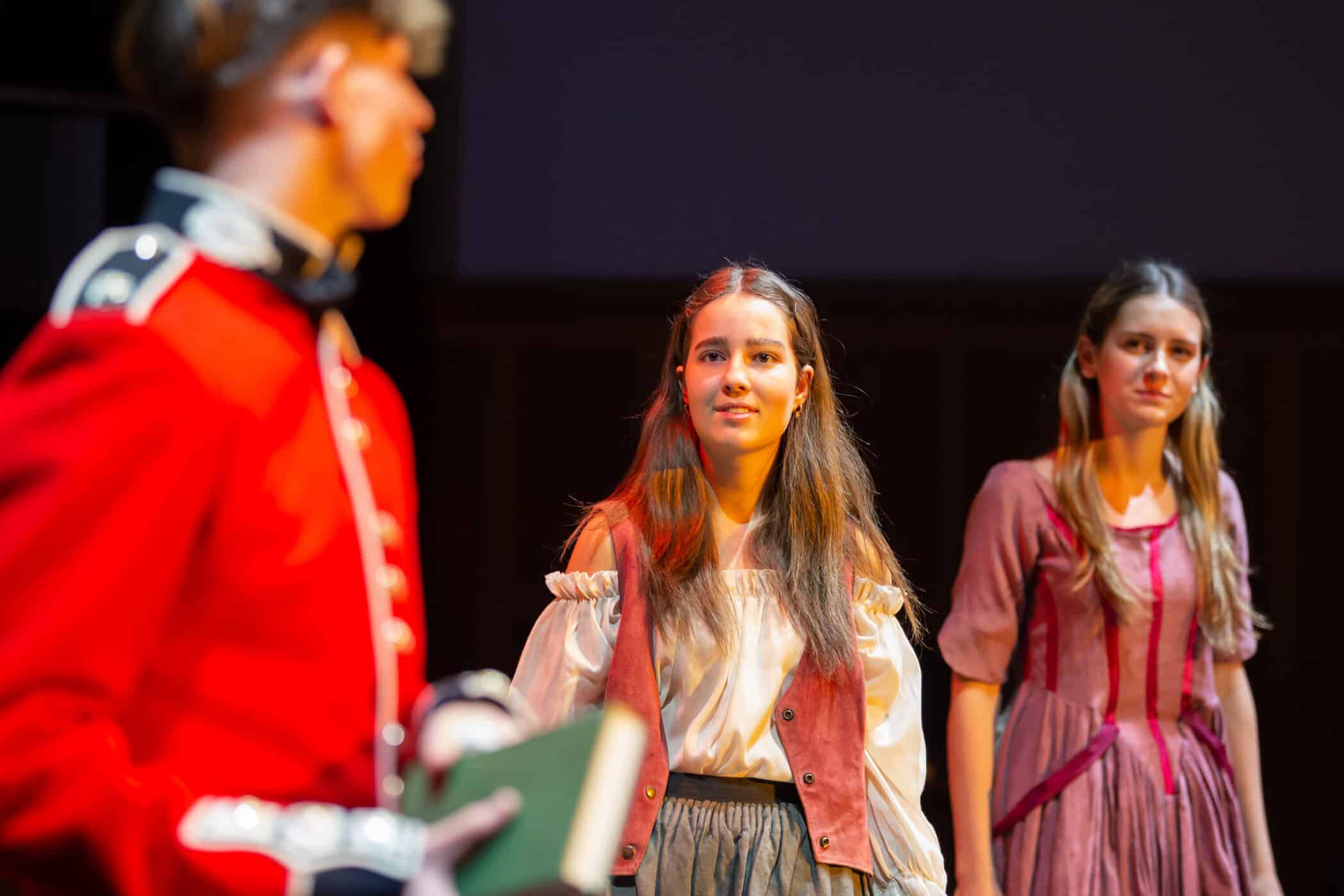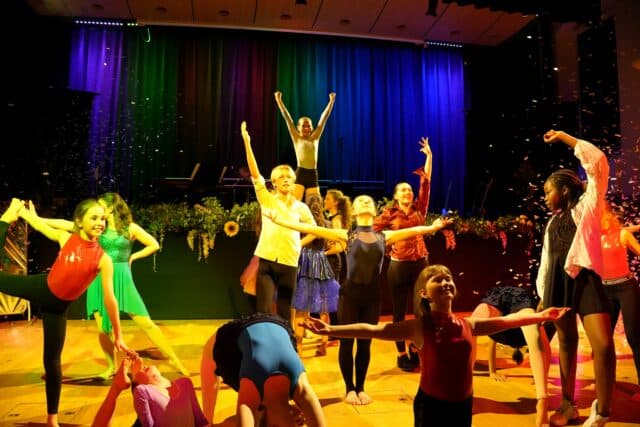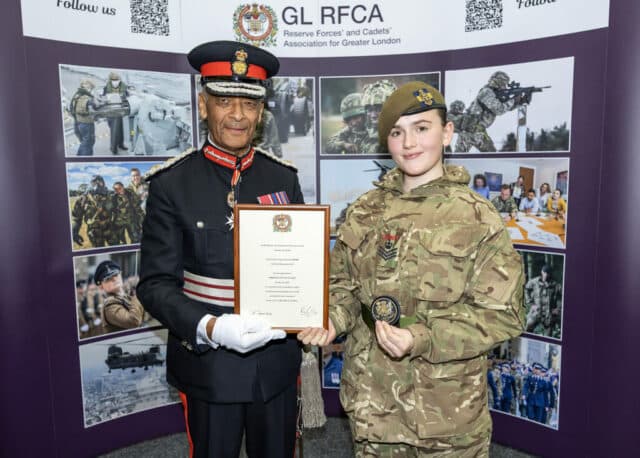This multi-layered and complex play was handled exceptionally well by the cast. The text is challenging at times; rich with 18th-century language, slang and dialect. The cast had clearly worked hard to understand the nuances of the play and to make those visible to the audience. Jacob Secker and Charlie Holt’s dramatic opening scene set the tone for the exploration of some difficult themes.
John Warfield’s portrayal of a man wrestling with conveying compassion to the penal colony founded by petty criminals was masterfully acted. His composed portrayal of Second Lieutenant Ralph Clark showed us his empathy and relentless endeavour that centred the play for the audience as he strove to audition and rehearse the players. His ‘Oberon’ like control of the play gave an excellent opportunity for Theo Scott Holland’s ‘Puck’-like performance as an indigenous Australian observing the settlement from a safe distance as he questions their movements and motivations.
The Royal Marines played by Jack Paulson, Annalise Dixon, James Bedford, Isabella Pinnes, Genevieve Chan and Lara Cassini underpinned the authoritative position within the play as they exclaimed their distaste for all things theatrical. The themes of kindness, humility and ethics were expertly explored by the group who veered from extremely sensitive to compassionless in their performances, as well as perpetually drunk in some cases. Caroline Bartram, as the stern Reverend Johnson, gave an experienced performance as she investigated the morality of the acting profession. George Mecrate-Butcher portrayed a dominant yet sensitive characterisation of Captain Arthur Philip as an unexpected supporter of Clark’s proposed play.
James Roberts played Scotsman Major Robbie Ross with great assurance. His impassioned performance gave a true reflection of the intensity that the first inhabitants of this settlement would have felt; when tempers ran high as the touchstones of past lives faded.
As the play within a play unfolds the collaborative working of Maddy Paul, Lara Sennaro and Clemmie Martin became a narrative of deliberately provocative presentation. Jointly the female characters showed the audience the layers of mistreatment and manipulation that women of the Georgian period would have suffered. Complex words were not needed as the communication was clear. Notably, Sienna Cunningham as Dabby exemplified a refusal to give in to authority of any kind, bringing humour and dignity to the character’s dreams of returning home. The culmination of this theme were the superb performances from Phoebe Lyes and Sophie Clark. Phoebe acted with such warmth and thoughtfulness in her portrayal of Mary Brenham. Sophie then brought the antithesis as Liz Morden, offering us a level of obstreperousness that comes from someone who has survived and will keep going, even in the face of the hangman’s noose.
Some comic relief was offered with Hector Macmillan’s performance as Robert Sideway, who gave us joyful one-liners and comic compassion to some serious moments. The student make-up team meticulously rendered his back as if it had suffered countless lashes and gave a brutal visual realism.
Daniel Strange and Leah Woulfe’s well-prepared performance reflected the intensity of their situation. Their verbal fluency, body language and ease with each other showcased the power of two actors in complete working unison.
Luke Bermejo’s commendable performance as Ketch Freeman, who is forced into the role of the colony’s hangman, was played so perceptively and his vocal momentum led the audience to collectively wish the convicts the very best as they took to the stage to perform their play.
Ada Ucuncu, Jacob Potter, Miriam Vasilache and William Cooke seamlessly managed the set as they performed and skilfully commenced each scene with the punctuated transition of props between each other. The student Production Crew Team offered lyrical musical accents, and atmospheric lighting, costume and set that enhanced the challenging performances on stage.
Under Mr Damon Young’s expert directorship, the whole cast and crew reminded the audience in the boldest of terms that theatre can be a powerful force for change. Yet also, a chance for a reflective moment in the search for compassion and forgiveness in our own lives.
By Rebecca Worthy, College Archivist





